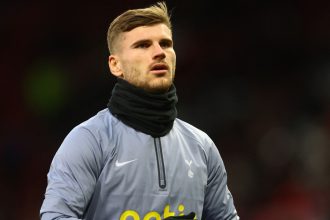Wolverhampton Wanderers seem to be emerging from the ashes of a trialling summer at Molineux, after the club were forced to undergo restrictions due to issues relating to financial fair play (FFP).
The Old Gold offloaded a host of key talent in order to generate profit to balance the books, leaving the squad inherited by Gary O’Neil short on quality and with little direction.
Last campaign, Wolves went through a rollercoaster of obstacles, from managerial changes, to relegation threats, to lack of individual performance, with all issues somewhat overcome as Julen Lopetegui ensured the club remained in the Premier League.
While the Midlands side generated millions thanks to departures on the back of the 2022/23 campaign, the club spent a magnitude of money to maintain certain squad members throughout the season with high wage demands.
Despite it being a testing time for all at the club, some players earned their salaries on the pitch more than others, as highlighted by the end-of-season statistics that saw Wolves as the lowest-scorers in the league with just 31 scored in 38 games played.
While there was little improvement in the third throughout the course of the season, it can’t be said that no efforts were made to bolster the options in attack at the beginning of the campaign, with one deadly talisman hired to reinstate the goals.
Why did Wolves sign Diego Costa?
In September 2022, it was announced that Wolves had signed former Chelsea striker Diego Costa as a free agent on a one-year deal.
The season prior to his Premier League return, the Spaniard had been playing back in his birth country of Brazil at Clube Atletico Mineiro, after abruptly leaving Atletico Madrid for personal reasons.
On paper, it was the ideal capture for Bruno Lage’s side, who were left depleted in the strike department after 2022 summer signing Sasa Kalajdzic ruptured his anterior cruciate ligament shortly after arriving.
It was always a wish for the Old Gold to bring in further reinforcements to the front line to compete with, and support, Raul Jimenez, who was struggling for form and had become a less reliable outlet for goals at Molineux.
Despite signing at the age of 34, Wolves knew just how potent Costa could be in England, given his proficiency when leading the line at Stamford Bridge during his three-year spell at Chelsea.
How many goals did Diego Costa score?
Renowned for his bizarre on-pitch antics, his animalistic approach to play and most prominently, his goal-scoring presence, Costa had one of the highest rises and falls in the Premier League.
After signing for Chelsea from Atletico Madrid for £32m in 2014, the Blues knew just how much of a prolific striker they were receiving, as he ended the 2013/14 campaign as La Liga’s third-highest scorer behind Cristiano Ronaldo and Lionel Messi.
Costa netted 27 goals in 35 appearances in his final season at Atletico, continuing his rich scoring streak in the Premier League as he scored 20 in 26 league appearances for Chelsea to guide the Blues to the title.
While his form dipped to 12 goals in 28 appearances the season after in the league, he amended his tally in the 2016/17 campaign back to 20 to repeat history and assist Chelsea in once again winning the league.
After three years, Costa dramatically returned to Atletico after experiencing differences with Antonio Conte, drawing a line under his career in England with 59 goals in 120 appearances for the west Londoners.
Four years after his departure from the Premier League, he returned sporting the Old Gold of Wolves, yet his scoring record was far from as stellar as it was at Stamford Bridge.
Diego Costa's Premier League record
Season
Club
Apps
Goals
League Position
2014/15
Chelsea
26
20
1st
2015/16
Chelsea
28
12
10th
2016/17
Chelsea
35
20
1st
2022/23
Wolves
23
1
13th
Figures via Transfermarkt
While Costa’s role in Lage’s side was far from being a title-delivering talisman, and more of a sporadic support system for the fellow strikers in the side, he was also far from a reliable goalscorer to call upon when needed.
In 25 appearances for Wolves, the Spaniard scored just once, with his only goal coming on matchweek 31 of the Premier League season with a highly celebrated goal against Brentford.
How much did Diego Costa cost Wolves?
According to Capology, Costa picked up a wage of £50k-per-week at Wolves, a fraction of his £150k-per-week earnings at Chelsea, telling of the less demanding role he was hired to cover in the Midlands.
His £2.6m-per-year salary at Wolves made him a higher earner than the likes of Mario Lemina and Craig Dawson, who both played integral roles last term, and notably level on earnings to Ruben Neves, who was the club’s top scorer in an abysmal squad scoring campaign.
Was he worth it?
It was never the intention or duty of Costa to be the star man at Molineux, and despite his lack of goals, he was a highly thought of figure at the club and in the dressing room.
As relayed by journalist Nathan Judah, Lopetegui waxed lyrical about the Spaniard’s influence on the team, dubbing him as “superb” and paying homage to his “work and mentality”.
The former Chelsea sensation added an element of support behind the scenes at Molineux, which played a part in the squad maintaining their Premier League status despite reaching the lows of the bottom of the table during the campaign.
While his success went far beyond his on-pitch performance, the Spaniard essentially cost Wolves £2.6m per goal, scoring just once during his £50k-per-week year in Wolverhampton.
He didn’t fulfil or improve the club’s absence in the final third, but did bring his personality and experience to the dressing room – whether that warranted a salary as high as £2.6m is questionable.
What is Diego Costa doing now?
Costa opted to return to Brazil at the expiration of his one-year deal at Molineux, where he now plays for Serie A side Botafogo at the age of 35.
The Brazilian-born ace has experienced a fast start to life back in his home country, having scored two goals in seven league appearances so far.
For his contribution to the entire squad at Wolves, and his presence in England throughout his career, Costa will forever be remembered fondly in the Premier League, however his time at Molineux was far from as accomplished as perhaps initially expected.






